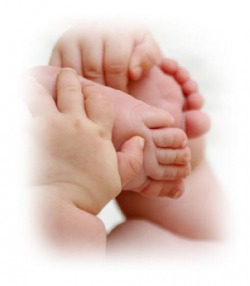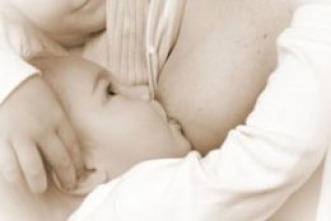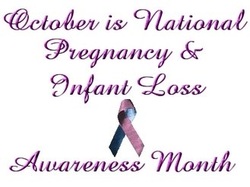Why you should donate Milk

Breast milk banks provide screened expressed breast milk, collected from healthy donors, to babies in need, particularly premature babies.
In the absence of the infant’s own mother’s milk, donor milk offers the benefits of human milk for the infant including:
Private donations and sponsored facilities and equipment have allowed us to begin this vital service. Your support is required for the vital service to continue. The Mothers Milk Bank would appreciate a financial contribution to be received from the Federal or Queensland State Government.
There is no cost to the mother’s, the milk is a gift.
You will be making a difference by supporting the mothers’ milk bank and help us provide pasteurized donor human milk to our Australian babies in need.
Options for Milk Donation
Milk donation is a personal choice and it can be done in a number of different ways. Local donation is often the easiest way to go if it is an option in your area. Some hospitals have their own milk donation programs and may be a good choice for a local program. Local La Leche Leagues and midwife groups may have information on other local milk donations centers and could answer questions about the milk donation process.
Larger milk banks accept donated breast milk from locations all over the country. Milk banks generally pay for the screening process, milk collection supplies, and shipping costs. The National Milk Bank provides a free breast pump for qualified milk donors to use. Before donating to a milk bank be sure that you are satisfied with their policy on finding a home for your breast milk. Some milk banks donate a portion of collected breast milk to babies in need, while others sell donated breast milk at a very high cost to needy infants.
http://www.nationalmilkbank.org/
In the absence of the infant’s own mother’s milk, donor milk offers the benefits of human milk for the infant including:
- Optimal nutrition
- Easy digestibility
- Immunological protection against many organisms and diseases
- Infection-fighting components such as immunoglobulins
- Protect immature tissue
- Promote maturation, particularly in the gastrointestinal tract
- Promote healing of tissue damaged by infection
- Prematurity
- Allergies
- Feeding/formula intolerance
- Immunologic deficiencies
- Post operative nutrition
- Treatment of some infectious diseases
- Treatment of inborn errors of metabolism
Private donations and sponsored facilities and equipment have allowed us to begin this vital service. Your support is required for the vital service to continue. The Mothers Milk Bank would appreciate a financial contribution to be received from the Federal or Queensland State Government.
There is no cost to the mother’s, the milk is a gift.
You will be making a difference by supporting the mothers’ milk bank and help us provide pasteurized donor human milk to our Australian babies in need.
Options for Milk Donation
Milk donation is a personal choice and it can be done in a number of different ways. Local donation is often the easiest way to go if it is an option in your area. Some hospitals have their own milk donation programs and may be a good choice for a local program. Local La Leche Leagues and midwife groups may have information on other local milk donations centers and could answer questions about the milk donation process.
Larger milk banks accept donated breast milk from locations all over the country. Milk banks generally pay for the screening process, milk collection supplies, and shipping costs. The National Milk Bank provides a free breast pump for qualified milk donors to use. Before donating to a milk bank be sure that you are satisfied with their policy on finding a home for your breast milk. Some milk banks donate a portion of collected breast milk to babies in need, while others sell donated breast milk at a very high cost to needy infants.
http://www.nationalmilkbank.org/
The Importance of Breastfeeding

BREASTMILK IS AN IRREPLACEABLE GIFT A MOTHER CAN GIVE TO HER BABY. IT IS THE START IN LIFE THAT NATURE INTENDED A BABY TO HAVE.
A primary role of the father is to teach the baby that love and comfort are not necessarily associated with food. ~Author Unknown
Breastfeeding...
A primary role of the father is to teach the baby that love and comfort are not necessarily associated with food. ~Author Unknown
Breastfeeding...
- protects your baby from illness and infection
- provides the correct food for your growing baby
- aids the development of your baby's eyesight, speech and intelligence
- promotes a special loving bond between mother and baby
- have a higher risk of cot death
- have an increased likelihood of allergy
- cost more money - you need to buy expensive infant formulas and feeding equipment. Non-breastfed babies are more likely to fall ill, costing more to the family and the community in medical bills
- are less environmentally friendly - in terms of fuel, energy and resources needed for artificial feeding
- Most babies have a strong need to suck when they are first born, so you can start breastfeeding straight away if you are both well.
- The more milk your baby takes from the breast, the more milk your breast will make.
- To establish a good milk supply let your baby feed frequently, whenever he wakes or seems hungry. Allow him to finish the first breast before offering the second side.
- Breastmilk is easily digested. It is normal for young babies to feed frequently, including night feeds. This helps your supply too.
- Babies breastfeed for comfort and closeness as well as to satisfy their hunger and thirst.
- There is no need to avoid any specific foods while you are breastfeeding. There are no magic foods that increase the milk supply - a sensible, well-balanced diet is the key.
- Many women successfully combine breastfeeding and work outside the home.
- As your baby grows, your breastmilk changes to meet his developing needs - your breastmilk is always the right food for your baby.
- Breastfeeding - The Natural Choice for Babies
- Breastmilk contains all the nutrients your baby needs for at least the first six months of his life and continues to be the most important part of his diet throughout the first year, supplying half or more of his nutrients till his first birthday and up to one third to his second birthday.
- The colostrum your baby receives in the first few days, and the breastmilk that follows, contain antibodies that provide resistance to infection.
- The unique combination of fatty acids and other components in breastmilk contribute to optimal brain development, so lack of these in artificially-fed babies may result in lower intelligence.
- Ensuring your baby has only breastmilk for at least six months may help minimise allergy problems.
- Breastfeeding provides optimal development for infants' eyesight, speech, jaw and oral cavity development.
- Non-breastfed babies have a lower resistance to disease and are more likely to become sick. Apart from the health benefits, breastfeeding means fewer doctors' visits and less time in hospital with illness.
- Lack of breastfeeding is linked with a higher risk of Sudden Infant Death Syndrome (SIDS or 'cot death').
- Non-breastfed babies are more likely to develop ear infections.
- Artificial feeding may increase the risk of a baby developing juvenile diabetes in the future. It may also increase the risk of heart disease.
- Breastfeeding helps your body return to its pre-pregnant state more quickly. Many women also find they lose excess weight while breastfeeding.
- Women who have not breastfed their babies have an increased risk of cancer of the breast and ovaries, heart disease and osteoporosis.
- Breastfeeding can delay the return of menstruation for many women. Apart from convenience, this saves money and lessens the impact of tampons and sanitary napkins on the environment.
- Breastfeeding's contraceptive effect can delay the return of fertility in many women, who exclusively breastfeed their babies of less than six months of age, and have not recommenced their menstrual cycle. This is known as the Lactational Amenorrhea Method of contraception, and is successful in approximately 98% of women. If a woman has an unchanging vaginal mucus pattern, there is minimal risk of ovulation, but if the pattern changes, she may need to seek advice if wishing to avoid pregnancy.
- Breastfeeding is usually easy and convenient. Breastfed babies are very portable and you have instant, pre-warmed, ready-to-serve food wherever you go.
- Breastfeeding - The Natural Choice for our Environment
- The production and feeding of breastmilk have a far lower impact on our environment and world resources than ANY alternative feeding method.
- Breastfeeding saves food resources, fuel and energy.
- No packaging is required and no chemicals are needed for preparation or disinfection.


